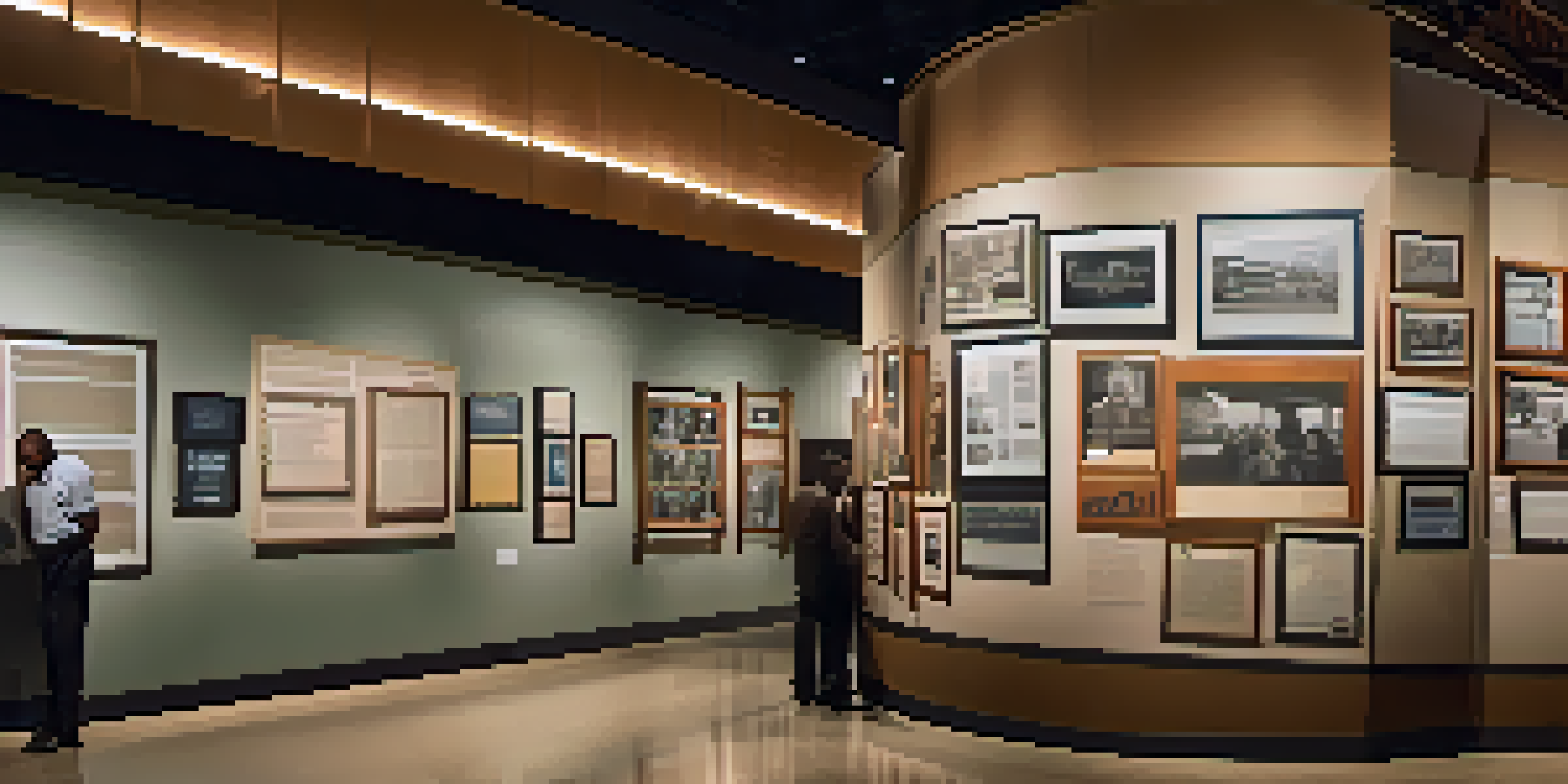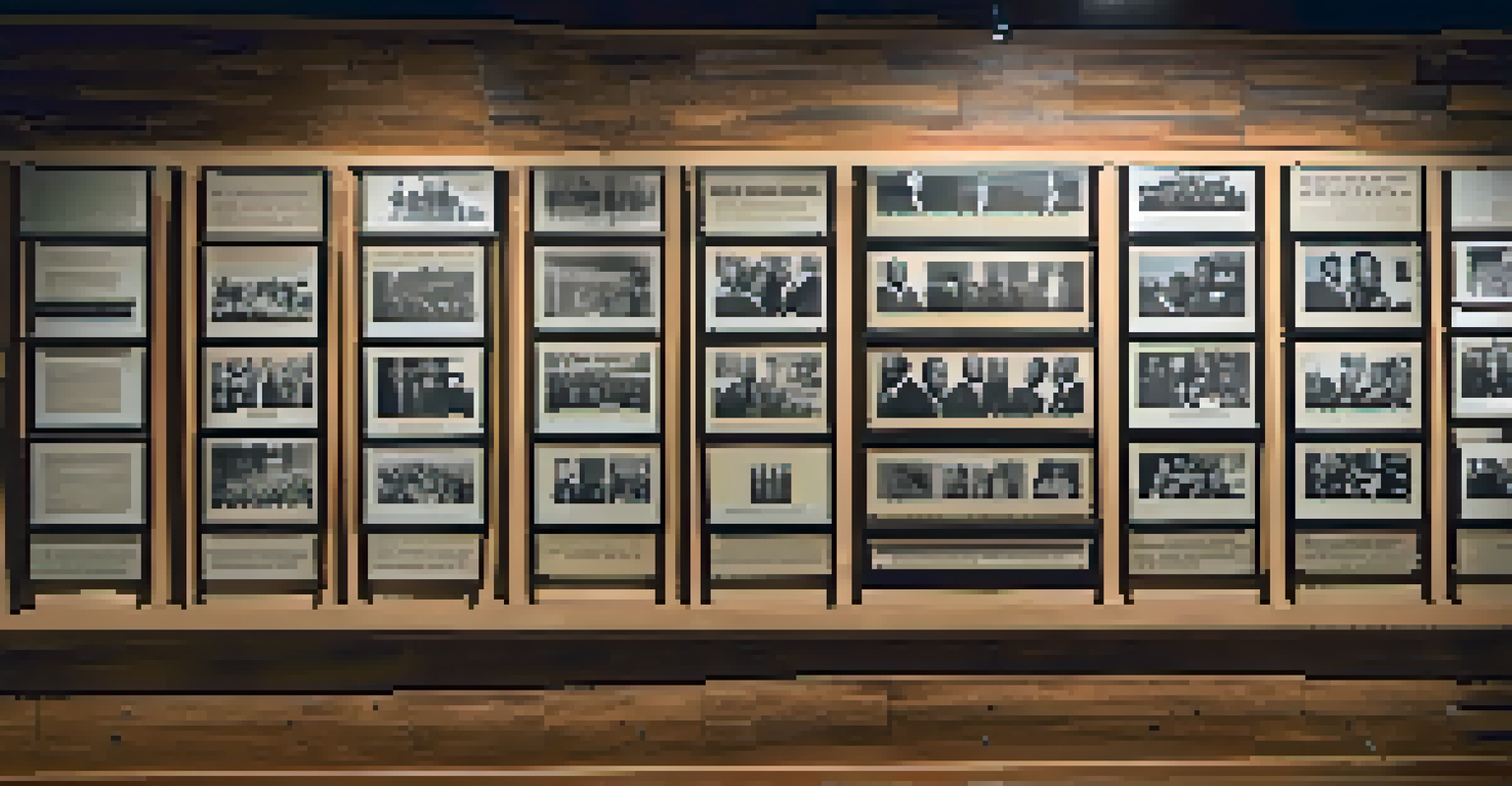The Role of the National Civil Rights Museum in Memphis

A Historical Overview of the National Civil Rights Museum
The National Civil Rights Museum, located at the former Lorraine Motel, where Dr. Martin Luther King Jr. was assassinated, stands as a powerful testament to the struggle for civil rights in the United States. Opened in 1991, the museum chronicles the history of the Civil Rights Movement from the 17th century to the present day. Its location is not just symbolic; it invites visitors to reflect on the pivotal events that took place on that very site.
Injustice anywhere is a threat to justice everywhere.
Visitors are transported through time as they walk through various exhibits that showcase key figures, landmark events, and the ongoing fight for equality. The museum integrates multimedia presentations, artifacts, and personal stories to create a comprehensive narrative. This immersive experience helps everyone, regardless of their background, to grasp the significance of civil rights.
The museum's architecture also plays a crucial role in enhancing the experience. The preservation of the Lorraine Motel and the addition of modern facilities create a space that honors the past while inviting dialogue about the future. This juxtaposition encourages visitors to engage with the history in a meaningful way.
Educational Programs and Outreach Initiatives
Education is at the core of the National Civil Rights Museum’s mission. The museum offers a variety of programs aimed at students, educators, and the general public, aiming to foster understanding and dialogue surrounding civil rights issues. Through workshops, tours, and lectures, the museum serves as a crucial educational resource for all ages.

One of the notable programs is the museum’s Teacher Institute, which equips educators with tools and resources to teach civil rights history effectively. This initiative not only enhances classroom learning but also inspires educators to engage students in meaningful discussions about social justice. By focusing on experiential learning, the museum ensures that history comes alive for those who visit.
Civil Rights History and Education
The National Civil Rights Museum chronicles the struggle for civil rights through engaging exhibits and educational programs that foster understanding and dialogue.
Additionally, the museum's outreach initiatives extend beyond its walls. Collaborations with local communities and schools help spread awareness and promote civil rights education throughout Memphis and beyond. This commitment to outreach reflects the museum's dedication to making a lasting impact on society.
The Role of the Museum in Promoting Social Justice
The National Civil Rights Museum serves as a beacon for social justice advocacy, encouraging visitors to become active participants in the ongoing struggle for equality. The exhibits not only highlight past injustices but also connect them to contemporary issues, prompting reflection and action. This approach makes the museum relevant to today’s social climate.
The time is always right to do what is right.
By showcasing stories of resilience and activism, the museum inspires visitors to think critically about their roles in society. It emphasizes that the fight for civil rights is not just a historical narrative but an ongoing journey that requires engagement and commitment. The museum encourages dialogue on pressing issues such as racial inequality, voting rights, and police reform.
Moreover, the museum often hosts events, discussions, and exhibitions that focus on current social justice movements. These initiatives create a platform for voices that may otherwise go unheard, fostering a sense of community and solidarity. By bridging the past with the present, the museum empowers individuals to advocate for change.
Visitor Experience and Engagement
The visitor experience at the National Civil Rights Museum is designed to be both informative and transformative. As guests enter the museum, they are greeted with a narrative that is both personal and collective, making the history of civil rights accessible to everyone. Engaging exhibits, including interactive displays and first-person accounts, allow visitors to connect emotionally with the stories presented.
Guided tours are available, providing deeper insights into the exhibits and the historical significance of the events represented. Knowledgeable guides share personal anecdotes and historical context, enriching the visitor experience. This interactive approach encourages questions and discussions, making each visit unique.
Promoting Social Justice Today
The museum connects historical injustices to contemporary issues, inspiring visitors to actively participate in the ongoing fight for equality.
Furthermore, the museum's commitment to accessibility ensures that everyone can engage with its content. Resources such as audio guides and translated materials cater to diverse audiences, ensuring that the message of civil rights resonates broadly. This inclusive approach enhances the overall impact of the museum.
The Museum's Role in Memphis' Cultural Landscape
Situated in the heart of Memphis, the National Civil Rights Museum is a cornerstone of the city’s cultural landscape. It attracts visitors from around the world, serving as a vital educational resource and a site of reflection. The museum is not just a tourist attraction; it plays a significant role in Memphis’ identity as a city that values its rich history.
The museum also collaborates with local cultural institutions, such as the Stax Museum of American Soul Music and the National Museum of African American Music. These partnerships create a comprehensive narrative of African American history and culture in Memphis. By integrating various historical perspectives, the museum enriches the local cultural dialogue.
Moreover, the museum hosts annual events and commemorations that celebrate milestones in the Civil Rights Movement and promote community engagement. These events invite locals and tourists alike to reflect on the past and envision a more equitable future. The museum thus solidifies its position as a vital player in Memphis' ongoing story.
Commemorative Events and Special Exhibitions
Throughout the year, the National Civil Rights Museum hosts various commemorative events and special exhibitions that highlight significant moments in the Civil Rights Movement. These events often coincide with landmark anniversaries, drawing attention to ongoing struggles for justice and equality. They provide a space for reflection and remembrance, ensuring that the legacies of civil rights leaders are never forgotten.
Special exhibitions often feature contributions from contemporary artists and activists, exploring current social justice issues through a historical lens. These exhibitions encourage visitors to connect the dots between past and present, emphasizing the ongoing relevance of civil rights. This integration of art and activism fosters a deeper understanding of the complexities surrounding social justice today.
Cultural Hub in Memphis
As a cornerstone of Memphis' cultural landscape, the museum collaborates with local institutions to enrich the narrative of African American history and promote community engagement.
By hosting lectures, panel discussions, and community forums, the museum also creates opportunities for dialogue among diverse groups. These events facilitate conversations about the challenges faced by marginalized communities and the importance of allyship. The museum’s role as a facilitator of dialogue underscores its commitment to fostering a more just society.
Conclusion: The Enduring Legacy of the Museum
The National Civil Rights Museum stands as a powerful symbol of the struggle for equality and justice. Through its engaging exhibits, educational programs, and community initiatives, the museum not only preserves history but also inspires future generations to continue the fight for civil rights. Its impact extends beyond Memphis, serving as a model for similar institutions across the nation.
As visitors leave the museum, they carry with them the stories and lessons learned, reminding them that the journey toward equality is ongoing. The museum encourages reflection on personal responsibility and the importance of advocacy in today’s society. This legacy is vital for fostering a culture of understanding and respect.

Ultimately, the National Civil Rights Museum is more than just a place to learn about history; it is a call to action. It invites all of us to engage in the fight for justice, ensuring that the sacrifices of those who came before us are honored and remembered. The museum’s enduring legacy will continue to inspire and empower individuals to effect meaningful change in their communities.